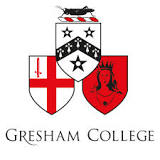
All the rivers, lakes and oceans froze with a "great vvarroomph" as Kurt Vonnegut's mad scientist dropped some molecules of "ice-nine" into a stream. Ice-nine was a (hypothetical) form of water, more stable than the ordinary form, which froze at room temperature. In the story, ordinary water is metastable and changes into the stable form - ice-nine - when it encounters the minutest traces of it.
Put ice-nine in a whisky and soda and you would have instant scotch on the rocks; but don't drink it or the water in your body will instantly freeze. Thankfully that's science fiction, but it is getting harder to be sure when one reads reports that scientists are concerned that they might inadvertently create "Killer plasma ready to devour the Earth".
The story centres on experiments that are planned at two high energy accelerators of heavy ions, nuclei of atoms like lead. One of these, known as the Relativistic Heavy Ion Collider or "RHIC", has just started in the USA, while a much more powerful version is currently being built in Geneva - the Large Hadron Collider, LHC.
Can drop by colliding these pieces of atoms at huge energies scientists will investigate conditions such as have not existed since the first moments of the universe. At that epoch, quarks and gluons, the seeds of atomic nuclei today, were in effect melted, swilling around in a hot soup known as "quark gluon plasma".]
According to some reports, scientists have warned that if these experiments "go wrong" they could produce a new form of particle, which media named the "killer strangelet".
Some theories predict that strangelets (forget the "killer") exist. These are atomic nuclei similar to those that make matter as we know it, but contaminated by "strange particles" such as are found naturally in cosmic rays. Whereas strange particles normally live less than the blink of an eye, it is possible that in nuclei they might stabilize. Indeed, the intriguing possibility is that under certain conditions, the resulting strangelets might even turn out to be more stable than the stuff that we're made of.
Were strangelets to come into contact with ordinary matter, they might then act like "ice-nine", gobbling up the nuclei of ordinary matter, until so heavy that the strangelet sank to the center of the Earth. Then it would eat up the Earth from the inside "converting it into one giant strangelet and killing us all in the process".
Could this really happen? On both continents committees of scientists were convened to look into this and the more general question: what risks are there when entering "unknown territory" with high energy particle accelerators? All our experience to date has given us a picture of how the universe works, and based on the best available evidence we proceed to plan the next steps.
Although RHIC and the LHC will be entering new territory in our current experience, it is not a first in the history of the universe. In these experiments scientists will be recreating conditions that existed long ago, within a split second of the Big Bang. So although these machines will enter new territory as far as human experience is concerned, the universe has been there before, and survived 15 billion years since.
Even today, some particles in cosmic rays attain energies far in excess of anything we can imagine reproducing here on Earth. If such conditions could lead to subatomic ice-nine, they would most probably have done so already, somewhere. All the evidence is that they have not.
The scientists produced a compelling report. Here we meet the problem of communicating science and distinguishing it from nonsense. As science cannot prove a negative, they could not say "it wont happen"; so they said, "it is exceedingly unlikely". In the UK someone summarised the report as saying "the chance is like me winning the lottery twice in succession". The trouble is that the vast numbers who buy lottery tickets regularly, clearly have such poor feeling for chance that they might regard two successive wins as decent odds, at least when the future of the planet is concerned.
Contrast this with the chance of being hit by an asteroid - tiny, but someday will happen - or with destroying our ecology, which already is happening. But as for killer strangelets or in some other way destabilizing the universe, would any committee chairman have risked using language the public understands and said "it wont happen"? After all, if wrong, no-one would ever know!